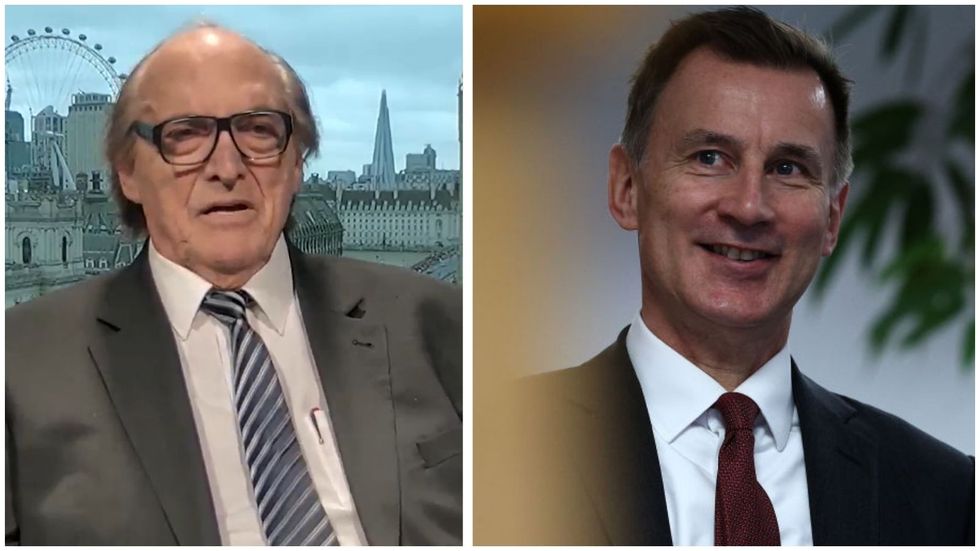
 Press Releases
Press Releases 
Inheritance tax (IHT) could be slashed in next week’s Spring Budget, however a former Bank of England adviser is warning such a tax cut would only have a “very small” impact.
Dr Roger Gewolb told GB News a reduction of the levy’s current rate threshold would “gain popularity” but also receive a “huge amount of criticism”, and urged the Chancellor to spend the funds on reducing fiscal drag.
Recent reports suggest the Jeremy Hunt is floating a cut to the inheritance tax rate to entice voters to the Conservative Party ahead of the next General Election.
Speaking to GB News, Dr Roger Gewolb suggested that a reduction in the IHT rate would be the equivalent of “moving the deck chairs on the Titanic”.
Do you have a money story you’d like to share? Get in touch by emailing money@gbnews.uk.

Jeremy Hunt is being urged to consider changing tax allowances in his Budget announcement next week
GETTY/GB NEWS
The former Bank of England adviser said: “It’s very small. It’s £7billion. They will eliminate £7billion. It’s nothing. It’s lunch money.
“Very few people pay inheritance tax. Although to be fair, a lot of people perceive they will owe inheritance tax but the research shows that they don’t.
“But, it is a scary thing. I think it would gain a lot of popularity. It will also gain a huge amount of criticism saying you’re favouring the wealthy the better off.”
Inheritance tax is charged at 40 per cent on estates, including money, possessions and property, which are valued above the £325,000 threshold.
Around one in 25 families in the UK, the equivalent of four per cent, are estimated to have to pay inheritance tax.
According to Dr Gewolb, the Government should consider spending £7billion on increasing the tax allowance thresholds, which Mr Hunt has frozen until 2028.
He added: “Why can’t we have £7billion of threshold moving to help people who are still deciding between heating and eating?”
Experts have warned Britons of the impact of fiscal drag, often dubbed a “stealth tax”, with more people finding themselves dragged into higher tax brackets.
 Britons have seen the tax burden rise significantly in recent years GETTY
Britons have seen the tax burden rise significantly in recent years GETTY
This is due to tax thresholds failing to keep pace with wages and inflation; with the former rising and the latter remaining high in the past year.
Receipts for IHT between April 2023 to January 2024 came to £6.3billion, which is £0.4billion higher than the same period last year, according to Government figures.
Due to house prices rising, the value of estates has gone up which has inadvertently pulled people into higher tax brackets.
24World Media does not take any responsibility of the information you see on this page. The content this page contains is from independent third-party content provider. If you have any concerns regarding the content, please free to write us here: contact@24worldmedia.com